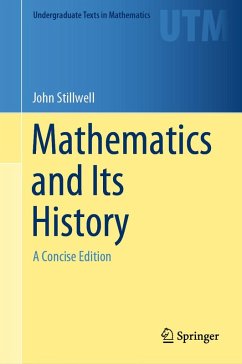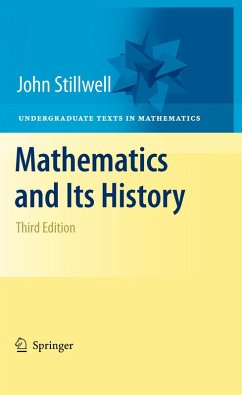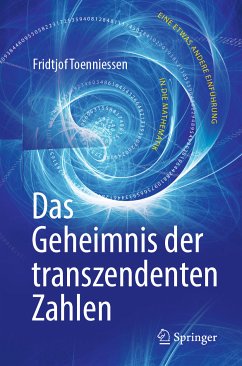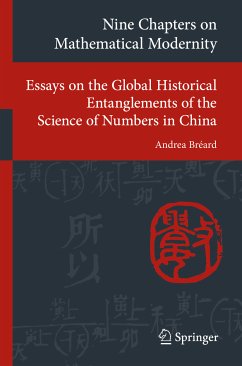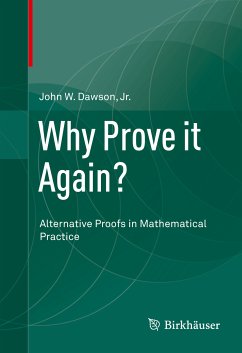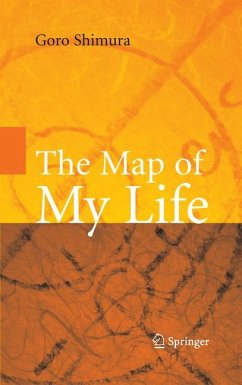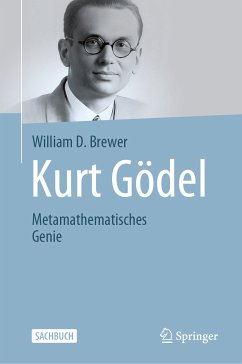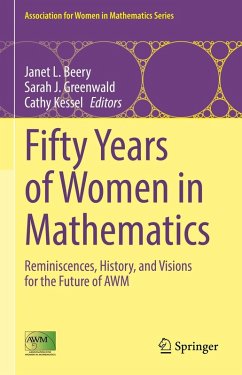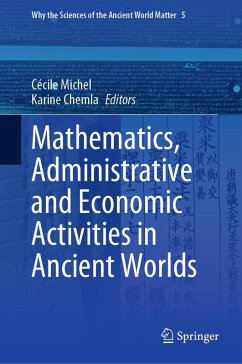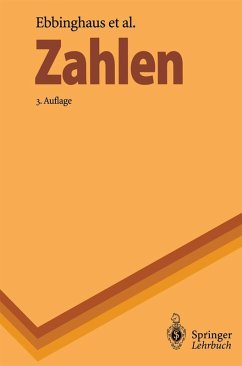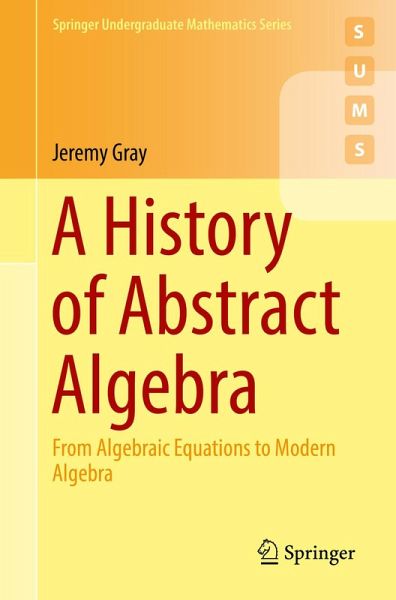
A History of Abstract Algebra (eBook, PDF)
From Algebraic Equations to Modern Algebra
Versandkostenfrei!
Sofort per Download lieferbar
30,95 €
inkl. MwSt.
Weitere Ausgaben:

PAYBACK Punkte
15 °P sammeln!
This textbook provides an accessible account of the history of abstract algebra, tracing a range of topics in modern algebra and number theory back to their modest presence in the seventeenth and eighteenth centuries, and exploring the impact of ideas on the development of the subject. Beginning with Gauss's theory of numbers and Galois's ideas, the book progresses to Dedekind and Kronecker, Jordan and Klein, Steinitz, Hilbert, and Emmy Noether. Approaching mathematical topics from a historical perspective, the author explores quadratic forms, quadratic reciprocity, Fermat's Last Theorem, cycl...
This textbook provides an accessible account of the history of abstract algebra, tracing a range of topics in modern algebra and number theory back to their modest presence in the seventeenth and eighteenth centuries, and exploring the impact of ideas on the development of the subject.
Beginning with Gauss's theory of numbers and Galois's ideas, the book progresses to Dedekind and Kronecker, Jordan and Klein, Steinitz, Hilbert, and Emmy Noether. Approaching mathematical topics from a historical perspective, the author explores quadratic forms, quadratic reciprocity, Fermat's Last Theorem, cyclotomy, quintic equations, Galois theory, commutative rings, abstract fields, ideal theory, invariant theory, and group theory. Readers will learn what Galois accomplished, how difficult the proofs of his theorems were, and how important Camille Jordan and Felix Klein were in the eventual acceptance of Galois's approach to the solution of equations. The book also describes the relationshipbetween Kummer's ideal numbers and Dedekind's ideals, and discusses why Dedekind felt his solution to the divisor problem was better than Kummer's.
Designed for a course in the history of modern algebra, this book is aimed at undergraduate students with an introductory background in algebra but will also appeal to researchers with a general interest in the topic. With exercises at the end of each chapter and appendices providing material difficult to find elsewhere, this book is self-contained and therefore suitable for self-study.
Beginning with Gauss's theory of numbers and Galois's ideas, the book progresses to Dedekind and Kronecker, Jordan and Klein, Steinitz, Hilbert, and Emmy Noether. Approaching mathematical topics from a historical perspective, the author explores quadratic forms, quadratic reciprocity, Fermat's Last Theorem, cyclotomy, quintic equations, Galois theory, commutative rings, abstract fields, ideal theory, invariant theory, and group theory. Readers will learn what Galois accomplished, how difficult the proofs of his theorems were, and how important Camille Jordan and Felix Klein were in the eventual acceptance of Galois's approach to the solution of equations. The book also describes the relationshipbetween Kummer's ideal numbers and Dedekind's ideals, and discusses why Dedekind felt his solution to the divisor problem was better than Kummer's.
Designed for a course in the history of modern algebra, this book is aimed at undergraduate students with an introductory background in algebra but will also appeal to researchers with a general interest in the topic. With exercises at the end of each chapter and appendices providing material difficult to find elsewhere, this book is self-contained and therefore suitable for self-study.
Dieser Download kann aus rechtlichen Gründen nur mit Rechnungsadresse in A, B, BG, CY, CZ, D, DK, EW, E, FIN, F, GR, HR, H, IRL, I, LT, L, LR, M, NL, PL, P, R, S, SLO, SK ausgeliefert werden.



